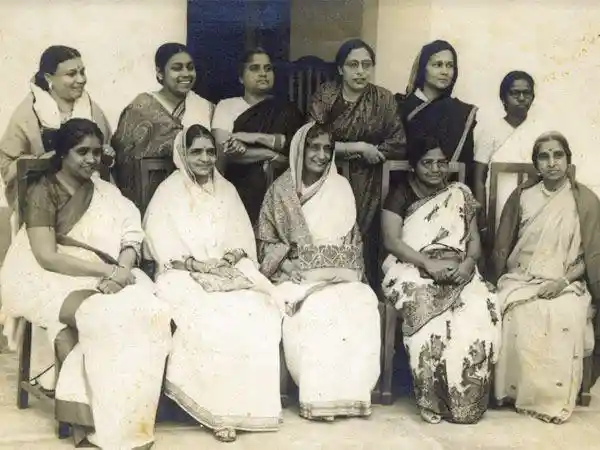Purnima Banerjee: A Fighter for the Fundamental Rights
A mixture of Gandhian spirit and Marxian ideas, Purnima Banerjee was among that group of women who were leading the freedom movement in the late 1930s and 1940s. She is famous for her many debates in the Constituent Assembly where she stood up for the fundamental rights of the Indian citizens.

Feminism in India. Image Credits- Feminisim in India
A leader who pursued her B.A. in prison, and the younger sister of freedom fighter Aruna Asaf Ali, Purnima Banerjee was born in 1911 in Allahabad. In 1933, when the Civil Disobedience Movement was retracted by Mahatma Gandhi, the Patel-Bose Manifesto led to a wider acceptance of socialist ideologies. Banerjee was in her twenties when this happened and like the youth of that time, her ideals and political views were shaped by the same influences. Moreover, it was also the time where voting rights for women were being introduced in various regions, leading to greater awareness of political rights, and encouraging women to contest in elections.
In 1934, Congress Socialist Party was established, and Banerjee was its member since its inception. She was also a secretary for the Indian National Congress city committee in Allahabad where her duties involved farmer meetings, organizing trade unions, and creating dialogues for better rural engagement.
Her involvement at the forefront of the freedom struggle was rewarded with numerous arrests. There were other prominent names in the group of women who were fighting alongside Banerjee such as Sucheta Kripalani, Vijaylakshmi Pandit, Uma Nehru, Rameshwari Nehru, and Hajra Begum. In 1941, she was arrested with Sucheta Kripalani for offering individual Satyagraha and later for her participation in the Quit India Movement.
Banerjee became a part of the Constituent Assembly as a representative of United Provinces in 1946 and held the position till 1950. Her revolutionary ideas were reflected in the various discussions that used to take place in the assembly, notable among those are the discussions around the Preamble, preventive detention and qualification of Rajya Sabha members.
One of her other noteworthy cases was made on 19th October 1949, where she stood for returning women to seats vacated by women in the Parliament. She argued that the clause which allowed casual vacancies in the Parliament to be filled by people belonging to the same community/religion should also be extended to women. She said:
“I want to make it quite clear that women do not want any reserved seats for themselves, but nevertheless, I suggest to the House that in respect of the number of women who are now occupying seats in the Assembly, if any of them should vacate their seats they should be filled up by women themselves. Not only is the association of women in the field of politics essential but it is indispensable, and therefore I feel that this indispensable section of the people should be amply represented in this House”
Her argument was not well received by other members of the assembly who thought women are ruled by heart and not head. Hence, the argument was rejected by the assembly.
She gave her final speech in the assembly on 24th November 1949 where she mentioned that she was extremely proud of the directive principles of the state as there were provisions for the future government to change the structure of society. However, her opinions regarding fundamental rights of speech and meeting were not the same. She said that:
“Fundamental Rights of meeting and forming associations should under no circumstances have been circumscribed or limited by any provisos. All rights are always absolute. They are relative, but when it comes to stating the rights, I should think, Sir, that they should not be burdened by giving the circumstances in which those rights cannot be exercised. If these circumscribing Clauses had not been stated in this Constitution the difference would have been psychologically great.”
Her disappointment with the restrictions put on fundamental rights in the constitution was not met with much enthusiasm by other members of the assembly. The speech was clearly an onset of her future endeavors to ease the restrictions which were put on fundamental rights. However, her life was cut short due to ill-health and she died in 1951 at an early age of 40 in Nainital.
It is clear from all the above quotes and examples that Banerjee was a woman ahead of her time, where her opinions were rejected only because they did not conform to the prevailing ideas or notions. Without women like Purnima Banerjee, society would never have understood that the voices and opinions of women matter and they are equally important to mold a nation just like they can be used to run a household smoothly.


